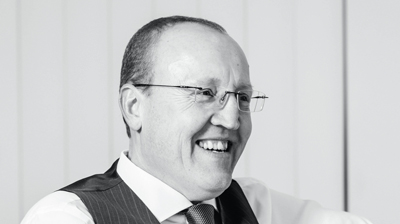
Rallying the industry: COVID-19 Legacy. As the asset lending sector gets increasingly affected by liquidity issues IAFN sought the views of senior equipment lenders at its recent online conference.
Q. How well have block discounters supporting independent finance company customers during the present crisis? (In response to a finance company colleague who claimed from first-hand experience that they are not being treated well and as a consequence have themselves needed to pull back from lending to their SME customers)
Mike Randall, CEO Simply: From our perspective we’ve seen a range of behaviours out there - ranging from sort of good support, to average support, to some really poor behaviour.
I think it’s fair to say across the board the independent lenders have not received the support that we would have expected – bearing in mind we filled the void from the last decade, coming out of the last crash, so we would have expected better. I think the reality is that we, like every business and independent lender, are going to have to look at our models and try to adapt firstly, to staying alive, and secondly facing the fact that the loser in all this is the SME because the SMEs are going to see a shrinking of availability of funding after all of this.
None of us predicted this situation and indeed how could we? But as lenders we are all going to have to contemplate our models and make sure we are there for the future because our customers actually need that.
Q. Are we looking at a situation where we have a massive reduction in the number of lenders and funders available for SMEs?

Steve Swift, CEO, Star Asset Finance: It’s a tough one to answer. It will depend how this crisis pans out over the coming months and the appetite of our customers going forward. My view is that all we independent funders are pretty much in the same boat and we’ve had very little or no help from government. Effectively from the quality of your business you’ve either had to handle the forbearance of your customers with your own funds – or you’ve had to take forbearance with your own funders and use their funds to handle the forbearance measures of your customers.
So I think the ability for us to lend to SMEs going forward is dramatically reduced – and something needs to be dome about that.
Q. How does that match up with the likely demand for funds from SMEs?
Steve Swift: Demand is starting to rise so already we are seeing at Star and Kennet a rise in appetite from our customers. But as the question implies, it’s very, very difficult at the moment and we’ve not until recently been funding on our own book – we’ve just opened up again because we’ve had to be really careful with liquidity. We’ve not got any forbearance so we just need to be very, very careful.
Q. What is your view on how the block funders have come under such criticism in emails we’ve received? How do you think they’ve performed & what does it mean for the future of block discounting?

Gavin Wraith-Carter, MD, Hitachi Capital Business Finance: I have heard of this via calls from the Finance & Leasing Association. We are really blessed because at Hitachi we are an independent and non-bank lender as well so I see the pain from our customers when we provide block facilities – but also we have to make our own funding on the money markets as well. When we go to our wholesale providers we go in a very different way. We go in there as a partner so we have some big stakeholders, we talk to them about the whole business, where we are going, and what our strategies are.
Over the last five years we’ve had some great partnerships with some of our block customers and they’ve explained: “This is what we want to do, these are our markets and these are our strategies.”
Q. The strength of the finance companies and their funders is obviously crucial, what advice would you give to non-banks about how to develop strong funding relationships that work – not just in the good times, but also in bad times?
Gavin Wraith-Carter: It’s about having an open relationship – not a relationship that is basically just a phone call every quarter saying: “What’s your price? - then adding: “You’re £20 too expensive! We’ll talk again in another quarter.”
That’s not a partnership - that’s just treating us as a dumb supplier. It’s certainly not something we would do when we go to our funders. We wouldn’t expect that kind of relationship – and I think it’s about sharing the good news and the bad news, about making sure that everybody has contingencies and actually share some of the pain.
Mike Randall: It IS all about relationships. A lot of us have been in the industry a long time and we know how the cycles work. As businesses we should be prepared for the bad times and you shouldn’t expect to halve to switch a relationship back on just because there is a bad time. The whole business is built upon relationships so it’s a really important issue.


